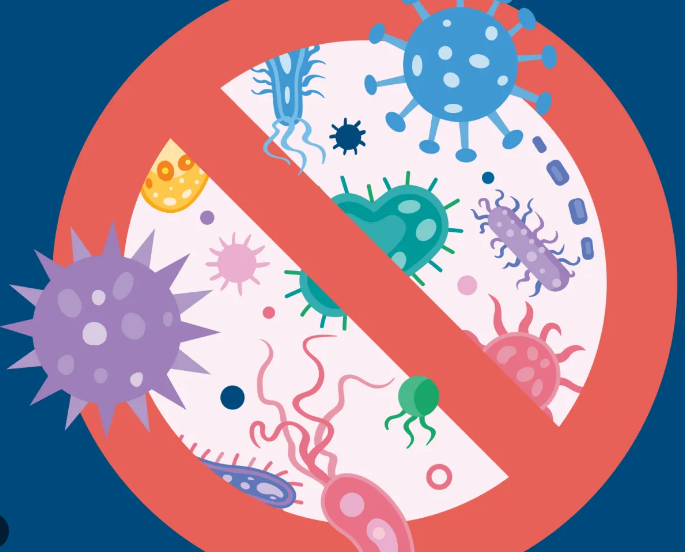Context
The Delhi Declaration during India’s G20 presidency saw a commitment to strengthen the global health architecture by building more resilient, equitable, sustainable and inclusive health systems.
About
- To implement the One Health approach, enhance pandemic preparedness and strengthen existing infectious diseases surveillance systems.
- To prioritise tackling Antimicrobial Resistance (AMR) through research and development (R&D), infection prevention and control, as well as antimicrobial stewardship efforts within respective National Action Plans (NAPs).
- To facilitate equitable access to safe, effective and affordable vaccines, therapeutics, diagnostics and other medical countermeasures, especially in Low- and Middle-Income Countries, Least Developed Countries and Small Island Developing States was also undertaken.
One Health Approach:
- It is an integrated approach that focuses on optimizing the health of people, animals, and the environment.
- It is crucial for preventing and responding to global health threats, especially in areas such as food and water safety, nutrition, control of zoonotic diseases, pollution management, and tackling antimicrobial resistance.
- In May 2021, the One Health High-Level Expert Panel (OHHLEP) was established to advise key organizations like FAO, UNEP, WHO, and WOAH on One Health matters.
What are antimicrobials?
- Antimicrobials – including antibiotics, antivirals, antifungals and antiparasitics are medicines used to prevent and treat infections in humans, animals and plants.
What is antimicrobial resistance?
- Antimicrobial Resistance (AMR) occurs when bacteria, viruses, fungi and parasites change over time and no longer respond to medicines making infections harder to treat and increasing the risk of disease spread, severe illness and death.
- As a result of drug resistance, antibiotics and other antimicrobial medicines become ineffective and infections become increasingly difficult or impossible to treat.
- Antimicrobial resistance (AMR) is a critical global concern due to the emergence of drug-resistant pathogens, making common infections harder to treat.
- “Superbugs,” or multi- and pan-resistant bacteria, are spreading rapidly, rendering existing antibiotics ineffective.
- The lack of new, innovative antimicrobials in the clinical pipeline exacerbates this issue.
- AMR’s impact is significant, affecting patient outcomes, healthcare costs, and even essential medical procedures like surgery and transplants.
- A new report by Lancet, which analysed data from 204 countries, in 2019, an estimated 4.95 million deaths were associated with bacterial AMR, with 1.27 million directly attributed to it. This alarming number is comparable to the death toll of diseases like HIV and malaria.
- Sub-Saharan Africa and South Asia emerged as the regions with the highest death rates associated with AMR, highlighting their heightened vulnerability to this global health threat.
AMR accelerates due to factors:
- such as overuse and misuse of antimicrobials, inadequate access to clean water and sanitation, poor infection control, limited access to quality medicines, lack of awareness, and insufficient enforcement of regulations.
AMR affects various infectious agents:
- including bacteria, tuberculosis, and viruses, making treatment increasingly complex and expensive.
- It also impacts fungal infections, leading to treatment failures, longer hospital stays, and greater healthcare costs.
- A comprehensive global effort is needed to address this critical challenge.
Global initiatives
- Global Action Plan on Antimicrobial Resistance (GAP): Countries committed to the GAP to develop and implement national action plans to combat AMR.
- Tripartite Joint Secretariat on Antimicrobial Resistance: The Tripartite Joint Secretariat (FAO, OIE and WHO) was established to drive multi-stakeholder engagement in AMR.
- World Antimicrobial Awareness Week (WAAW): WAAW is a global campaign that aims to raise awareness of AMR and encourage best practices.
- The Global Antimicrobial Resistance and Use Surveillance System (GLASS): GLASS is a system to collect, analyse, and share data on AMR.
- Global Research and Development priority setting for AMR: WHO developed a priority pathogens list to guide research and development into new antimicrobials, diagnostics, and vaccines.
- Global Antibiotic Research and Development Partnership (GARDP): GARDP is a partnership developing treatments for drug-resistant infections.
India’s initiatives
- India’s National Action Plan (NAP) for AMR targets heightened awareness, improved surveillance, reinforced infection prevention, increased research initiatives, and enhanced collaboration to control AMR.
- The Food Safety and Standards Authority of India (FSSAI) released “Antibiotic Residues limits” for food from animal origin.
- “National Consultation to Operationalize Action Plan for AMR Containment” in 2017, a collaborative effort involving the Ministry of Health and Family Welfare, National Centre for Disease Control (NCDC), WHO Country Office for India, state health ministries, and other stakeholders.
- The Indian Council of Medical Research (ICMR) initiated the “Antimicrobial Resistance Surveillance Network” to gather nationally representative surveillance data from over twenty state medical college laboratories, with centralized coordination
- Kerala became the first state to adopt the sub national State Action Plan.

